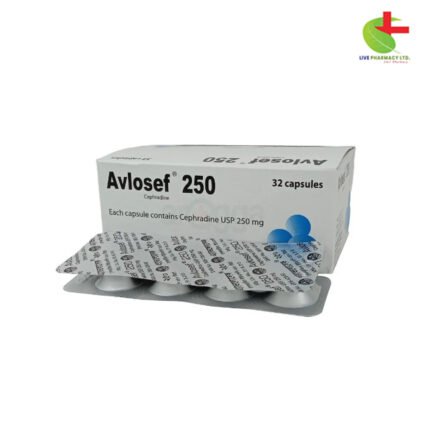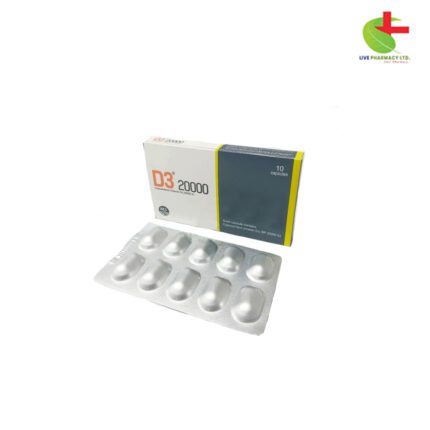Clindacin 300
180.00৳ Strip
- Clindacin is a powerful lincosamide antibiotic effective against a range of infections caused by susceptible anaerobic and gram-positive bacteria.
- It treats conditions such as respiratory, skin, bone, and dental infections, as well as severe intra-abdominal and pelvic infections.
- Suitable for both adults and children, Clindacin offers flexible dosing options for optimal results.
- Trust Clindacin for reliable infection management!
 Brand
Brand
|
Incepta Pharmaceuticals Ltd |
|---|---|
 Generics
Generics
|
Clindamycin |
 Type
Type
|
Capsule |
Indications
Clindacin is effective for treating various infections caused by susceptible anaerobic bacteria and specific gram-positive strains, including Streptococci, Staphylococci, and Pneumococci. It is indicated for upper and lower respiratory infections, skin and soft tissue infections, bone and joint infections, pelvic infections, intra-abdominal infections, septicemia, endocarditis, and dental infections. Additionally, Clindacin serves as an alternative therapy when combined with quinine or amodiaquine for multi-drug resistant Plasmodium falciparum infections.
Description
Clindacin is a lincosamide antibiotic derived from lincomycin, designed to combat infections caused by susceptible microorganisms. It targets aerobic gram-positive cocci, such as Staphylococcus aureus and Streptococcus species, as well as anaerobic bacteria, including Bacteroides and Propionibacterium species.
Dosage & Administration
Clindamycin Capsules:
- Serious Infections: 150 mg–300 mg every six hours.
- Severe Infections: 300 mg–450 mg every six hours.
- Capsules should be taken with a full glass of water to minimize esophageal irritation.
Clindamycin Oral Solution:
- Serious Infections: 8–12 mg/kg/day divided into 3 or 4 doses.
- Severe Infections: 13–16 mg/kg/day divided into 3 or 4 doses.
- More Severe Infections: 17–25 mg/kg/day divided into 3 or 4 doses.
Clindamycin IV/IM Injection:
- Adults: 600–1200 mg/day in 2–4 doses for serious infections; up to 4800 mg for life-threatening situations.
- Pediatrics (1 month to 16 years): 20–40 mg/kg/day divided into 3 or 4 doses.
Interactions
Clindacin may enhance the effects of neuromuscular blockers and should not be administered concurrently with erythromycin due to potential antagonism.
Contraindications
Clindacin is contraindicated in individuals with known hypersensitivity to the drug or its components.
Side Effects
Possible side effects include abdominal pain, nausea, vomiting, diarrhea, skin rashes, and pruritus.
Pregnancy & Lactation
Classified as Pregnancy Category B, Clindacin can cross the placenta. It should be used during pregnancy only if necessary. Clindacin may also appear in breast milk; caution is advised for nursing mothers.
Precautions & Warnings
Use with caution in patients with a history of gastrointestinal disorders, particularly colitis.
Special Populations
Monitor organ system functions in newborns and infants receiving Clindacin. No dosage adjustment is necessary for geriatric patients.
Overdose Effects
Overdosage is rare but may result in similar adverse reactions as normal doses. Treatment involves gastric lavage; no specific antidote exists.
Therapeutic Class
Macrolides
Reconstitution
For the oral solution, shake the bottle and add 80 ml of cooled, boiled water. Use within 2 weeks if kept at room temperature.
Storage Conditions
Store below 30°C, away from light and moisture. Keep out of reach of children.













Reviews
There are no reviews yet.